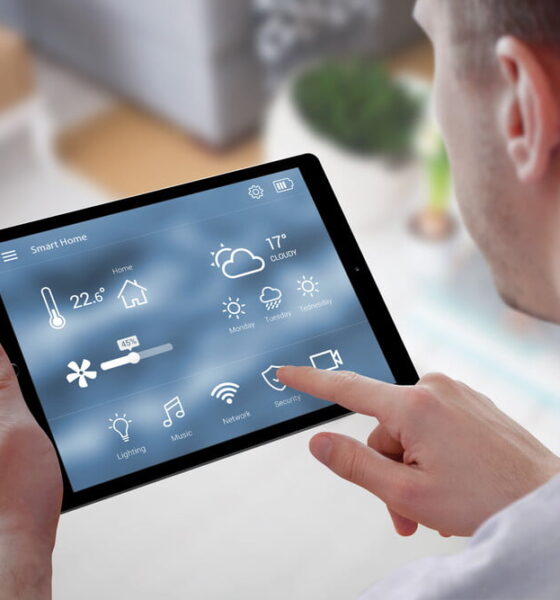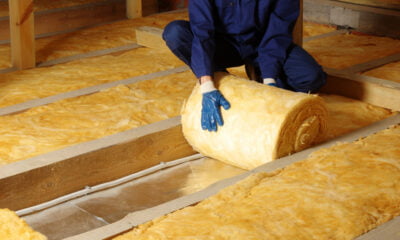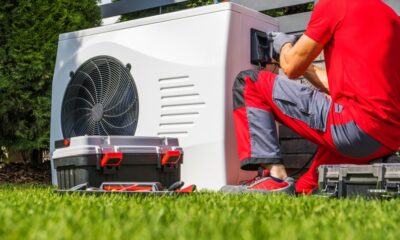

Features
Unspoken Heating And Ventilation Secrets For An Eco-Friendly Home
The demand for sustainable housing is surging faster than anyone could have predicted. The United States Green Building Council estimates that 40% of all U.S. were green in 2018. An estimated 84% of homes have some sustainable features.
There are a number of reasons that more people are interested in green homeownership. The growing concern about climate change is probably the biggest reason. One Pew Research poll found 64% of Americans care about protecting the environment as much as the economy. A growing number of subsidies for eco-friendly home improvements also play a role.
Unfortunately, not all homeowners that want to make green living a priority know what steps to take. You need to start by making some changes to your heating and ventilation systems. This will drastically reduce your carbon footprint and help the environment.
Heating and Ventilation Ideas to Reduce Your Carbon Footprint
Pollution in the atmosphere has a significant impact on the environment. Sometimes the air inside is more polluted than outdoors, which can be damaging to the environment when it is released. It also has a detrimental effect on how healthy our homes are. Some indoor pollutants can be caused by poorly maintained energy systems and appliances, which, when not running efficiently, also waste energy. An increasing number of people are looking for ways to create a more sustainable home, which is good for both their health and the planet.
By ensuring that your current boiler or heating, ventilation and air conditioning (HVAC) system is as efficient as possible, you can conserve energy and ensure that your home is better for the environment and healthier to live in too.
Maintaining Systems For Cleaner Air
Heating a home already accounts for almost two thirds of household energy consumption, so it is important to ensure that waste is kept to a minimum. To drastically reduce a household’s carbon footprint, heating and ventilation systems can be fueled by solar panels or geothermal heat pumps. However, no matter how your system is run, if it is properly installed and maintained, it will operate more efficiently and waste less energy. Faulty dampers can fail to regulate air flow properly, and the whole system has to work much harder to push air through clogged filters. Regularly replacing air filters will not only improve efficiency but can also help to create a healthy home environment, ensuring that the indoor air is free of allergens, dust and other pollutants.
Reducing Moisture To Prevent Mold
A healthy HVAC system will also help to prevent mold in the home. Not only is mold unsightly, but it can irritate the eyes, nose and throat, cause allergic reactions, and aggravate other respiratory conditions. Mold thrives in damp areas, so by ensuring kitchen and bathroom ventilators have clean filters, levels of moisture and humidity can be kept to a minimum. Insulating and sealing gaps around the house will not only help to keep the fabric of your home dry and the air free from moisture, but it will also reduce any unnecessary loss of heat, which could result in a reduction in your energy bills.
Mold can be bad for the environment as well. Black mold spores can kill wildlife after they escape your home.
Minimizing Pollutants From Alternative Heating Systems
Although they can be an attractive and sustainable form of heating, open fires and log burners are not always the best choice for homeowners trying to live a greener lifestyle. Wood fires produce particulate matter that not only contributes to pollution levels in the atmosphere, but also causes respiratory health conditions in humans. In order to protect the environment and the general health of the public, the government in England has introduced legislation that will see polluting fuels gradually phased out over the next three years.
Keeping your heating systems well maintained will maximize their efficiency and minimize energy waste. Together with a reduction in the use of highly polluting fuels, this will not only reduce your carbon footprint but also improve your home environment, making it a much healthier place to live.
The Sustainability of Your Heating and Ventilation System Must be a Priority
You need to make sure every element of your home is as eco-friendly as possible. This includes your ventilation and heating system. These improvements will be highly beneficial for the environment.


 Environment12 months ago
Environment12 months agoAre Polymer Banknotes: an Eco-Friendly Trend or a Groundswell?

 Features11 months ago
Features11 months agoEco-Friendly Cryptocurrencies: Sustainable Investment Choices

 Features12 months ago
Features12 months agoEco-Friendly Crypto Traders Must Find the Right Exchange

 Energy11 months ago
Energy11 months agoThe Growing Role of Solar Panels in Ireland’s Energy Future





























